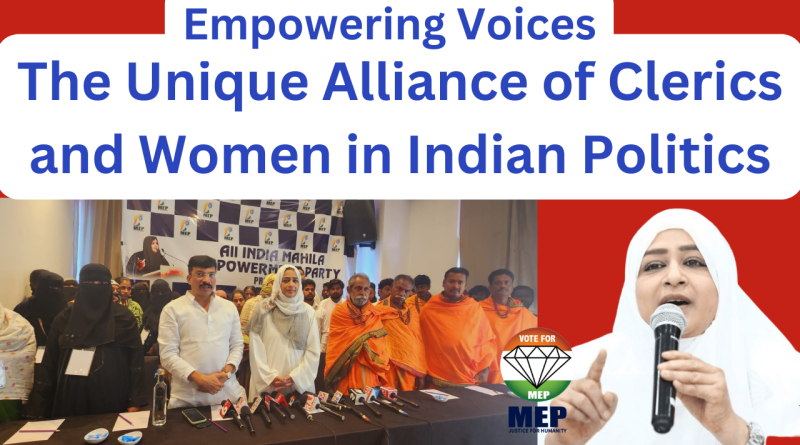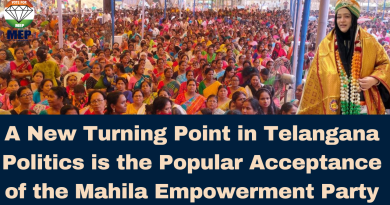Empowering Voices: The Unique Alliance of Clerics and Women in Indian Politics
In the political landscapes of many countries, the marriage of gender equality and religious inclusivity often seems like a distant dream. Yet, in a significant move, the All India Mahila Empowerment Party (AIMEP), led by Dr. Nowhera Shaikh, is breaking the mold by merging these two spheres. This revolutionary step underscores a bold statement: empowerment and service know no bounds.
Introduction: A Bold Step Toward Inclusion
In a world where politics often feels like a realm reserved for a select few, the All India Mahila Empowerment Party is rewriting the narrative. Under the stewardship of Dr. Nowhera Shaikh, AIMEP has carved a niche for itself by advocating for ‘Justice for All.’ But how does a political party embody this principle in its internal structure and public policies? The answer lies in the party’s innovative approach to its candidate selection process, emphasizing gender equality and religious representation.
Clerics in Politics: A 30% Reservation
A Strategic Move for Societal Harmony
Clerics, or religious instructors, hold a revered position in society, often seen as the moral compasses of their communities. Recognizing this, AIMEP has allocated 30% of its party seats to clerics. This decision is more than a political maneuver; it’s a step toward harmonizing society’s diverse voices, ensuring that the spiritual leaders who guide daily lives also have a say in the legislative processes that shape the future.
- Why clerics?
- Guiding moral and ethical values in society.
- Strong influence and trust within communities.
- Ability to bridge the gap between spiritual guidance and political decision-making.
“Our aim is to reflect society’s true fabric within our party structure,” says Dr. Nowhera Shaikh, emphasizing the inclusive nature of AIMEP.
Empowering Women: Beyond the 33% Reservation
At a recent news conference, Dr. Shaikh went a step further, revealing that, in addition to the already impressive 33% reservation for women, the party aims to reserve 50% of its seats for female candidates should they choose to run. This bold statement reiterates the party’s commitment to shattering the glass ceiling that has long hovered over women in politics.
- Implications for Women:
- Increased access to political platforms.
- Empowerment through representation.
- An encouragement for women across the nation to engage in politics.
The Open-Door Policy: Justice for All
One of AIMEP’s most compelling attributes is its open-door policy. “There is no distinction between the affluent and the poor in our party,” Dr. Shaikh asserts. This principle is not just rhetoric but a foundational pillar of their platform, ‘Justice for All.’ It signifies a paradigm shift in Indian politics, where anyone with altruistic motives and a desire to serve society can find a place.
- Key Aspects of the Open-Door Policy:
- Equality among candidates, irrespective of socio-economic status.
- Encouragement for altruistic individuals to step forward.
- A diverse mix of candidates enhancing the party’s inclusivity.
Conclusion: A Beacon of Hope
The All India Mahila Empowerment Party, under the visionary leadership of Dr. Nowhera Shaikh, is setting a new precedent in the political realm. By reserving 30% of its seats for clerics and aiming for a 50% reservation for women, AIMEP is not just talking about empowerment; it is living it. This blend of religious inclusivity and gender equality might just be the formula needed for a more balanced, empathetic, and inclusive form of governance.
As the next general election looms on the horizon, the actions and strategies of AIMEP offer a ray of hope and a model for political parties worldwide. It’s a reminder that politics, at its core, should be about service, representation, and justice for all. In the end, isn’t that what democracy is all about?



